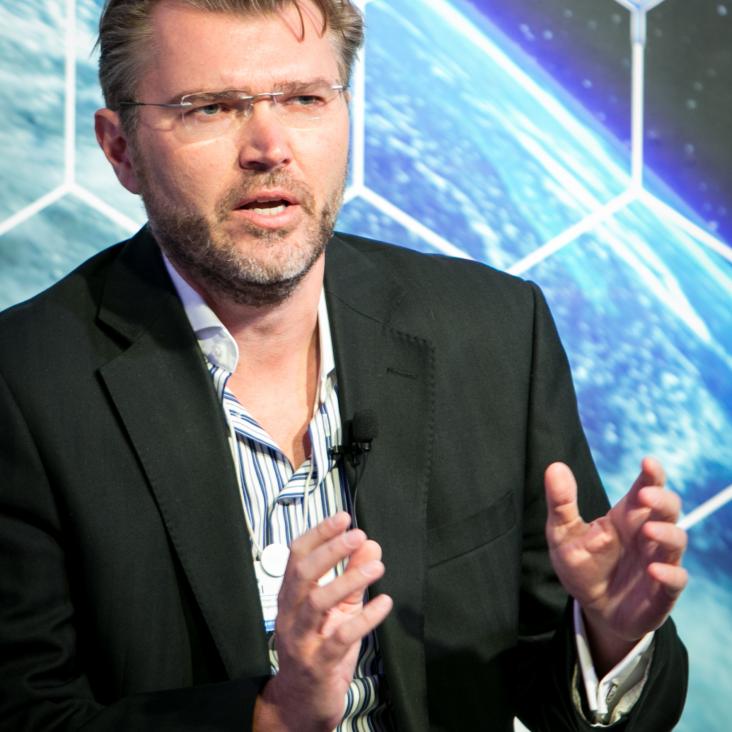
Prof. Vlatko Vedral
University of Oxford, UK
Prof. Vlatko Veldral is a professor of Quantum Information Science at University of Oxford, UK. He obtained his PhD in Physics from Imperial College of Science, Technology and Medicine, London. His research interests include Quantum Mechanics, Quantum Information and Quantum Entanglement. After his PhD, Vedral was appointed Elsag-Bailey postdoctoral research fellow in Oxford. He then held a research fellowship at Merton College, Oxford returning to Imperial College as the Governor’s lecturer to start a quantum information science research group, a position he held from 2000-2004. Before returning to Oxford, he was centenary professor of quantum information science at the University of Leeds from 2004 to 2009. As of 2009, he has held joint appointments as a Professor of Physics at the University of Oxford and the Centre for Quantum Technologies (CQT) at the National University of Singapore, the latter ending in the summer of 2022. He was appointed Fellow of Wolfson College, Oxford in 2009. He has published over 190 papers including 36 Phys. Rev. Letters, 6 Nature papers and six invited reviews on quantum information, including 4 Reviews of Modern Physics. Total citation number over 10000 (h factor = 45). He received the Royal Society Wolfson Research Merit Award in 2007. He is the author of several books, including Decoding Reality.
Prof. Kostas Skenderis
University of Southampton, UK
Kostas Skenderis is a Professor in the school of Mathematical Sciences, the Head of the Applied Mathematics & Theoretical Physics Division in the school of Mathematical Sciences and the co-Director of the STAG Research Centre. He obtained his undergraduate degree from Thessaloniki, and his PhD in theoretical Physics from SUNY at Stony Brook, USA. He held faculty positions in Princeton University, the University of Amsterdam, and since 2012 at the University of Southampton. His research interests include string theory, quantum field theory and cosmology. He worked extensively in holographic dualities and in particular he introduced the method of holographic renormalization, which underlies the mathematics of the “holographic dictionary”, i.e. the way holography links bulk and boundary quantities. His current research includes the use of lattice methods in holography and the application of holography to cosmology.
Prof. Arieh Ben-Naim
The Hebrew University of Jerusalem, Israel
Arieh Ben-Naim is a professor of physical chemistry who retired in 2003 from the Hebrew University of Jerusalem. He has made major contributions over 40 years to the theory of the structure of water, aqueous solutions and hydrophobic-hydrophilic interactions. He is mainly concerned with theoretical and experimental aspects of the general theory of liquids and solutions. In recent years, he has advocated the use of information theory to better understand and advance statistical mechanics and thermodynamics. His particular interest lies in entropy, information and the second law of thermodynamics.
Prof. Arun K Pati
TCG CREST, Kolkata
Arun Kumar Pati is a Professor at Center for Quantum Engineering Research and Education (CQuERE), TCG CREST, Kolkata and an adjunct professor at IISER, Mohali. He is a Professor and Head of the Center for Quantum Science and Technology (CQST), at IIIT, Hyderabad and also Director of Quantum Ecosystem and Technology Council of India (QETCI), Hyderabad. Formerly, he was a professor of quantum information at the Harish Chandra Research Institute, Allahabad, India from January 2011 to December 2023 and scientist at BARC and Institute of Physics from 1989 to 2010. His research areas include all aspects of quantum information and quantum computation, the theory of geometric phases and its applications, and the foundations of quantum mechanics. Among his important discoveries are the No-Deletion theorem, Geometric Phases for mixed state, Remote State Preparation protocol, the No-Hiding Theorem and the Stronger Uncertainty Relations in quantum mechanics. He has more than 150 research papers in international journals and conferences on these topics. He has edited two books: (i) Quantum Information with Continuous Variables and (ii) Quantum Aspects of Life. His research papers have been highlighted in NATURE, NATURE ASIA, SCIENCE, and many national and international newspapers. He is Fellow of the Indian Academy of Science, Bangalore and National Academy of Science, Allahabad. He was Recipient of the Indian Physical Society Award for Young Physicist and awarded J C Bose National Fellowship from Department of Science and Technology, India
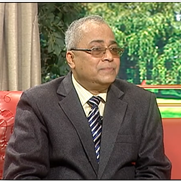
Dr. A. K. Mukhopadhyay
Former Professor (AIIMS, New Delhi, India)
Prof. A. K. Mukhopadhyay is presently Professor of Pathology, North DMC Medical College and Hindu Rao Hospital, Delhi. He was formerly Professor of Department of Laboratory Medicine at All India Institute of Medical Sciences (AIIMS), New Delhi (1985-2018). In India, he is honored as “The Father of Laboratory Medicine.” He received his MBBS from University of Calcutta (1977), MD in Pathology from AIIMS, Delhi (1981). His areas of expertise are neurodegenerative disorders, like Parkinson's disease, Alzheimer disease, vascular dementia; and neuropsychiatric disorders, like depression and stress. His works have been published in several internationally recognized publications. He is well-known for his works in the field of Consciousness. He coined the term and concept of “supracortical consciousness” in 1985 and further developed this idea integrating science, humanity and spirit. He received several international awards. Some of them are: Doctor in Science (Honoris Causa) by the Open International University for Complementary Medicine, Colombo, Sri Lanka in 1996, the 2000 'Millennium Medal' of American Biographical Institute (ABI), and the Lifetime Achievement Award by Systems Society of India (SSI) in 2018. He is a member of the International Academy of Pathology, New York Academy of Sciences, Indian Medical Association and Indian Science Congress Association. Prof. Mukhopadhyay has been long associated with the Bhaktivedanta Institute and he has delivered several stimulating lectures at the Bhaktivedanta Institute’s annual conferences and seminars
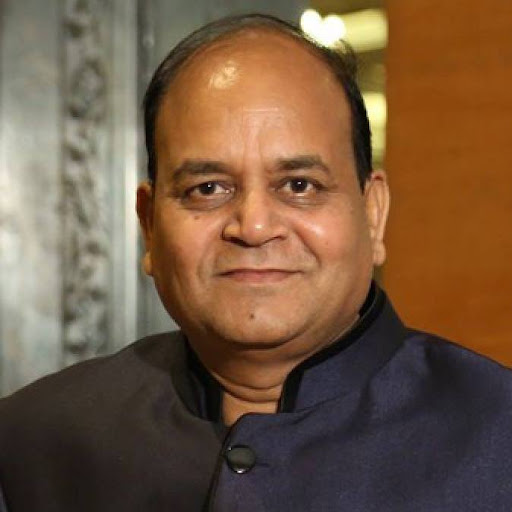
Prof. GPS Raghava
IIIT Delhi
G.P.S. Raghava is a Professor & Head at Department of Computational Biology, Indraprastha Institute of Information Technology (IIIT-Delhi), India. Before joining IIIT-Delhi in 2017, he was working as a Chief Scientist at Bioinformatics Centre, CSIR-Institute of Microbial Technology (IMTECH), Chandigarh, India. He did his M.Tech. from Indian Institute of Technology (IIT-Delhi), New Delhi in 1986. He did his Ph.D. in Bioinformatics in 1996 from IMTECH, Chandigarh. He worked as a Postdoctoral fellow at Oxford university, Oxford from 1996 to 1998. Moreover, He also worked as a Bioinformatics specialist at UAMS, USA (2002-2003 & 2006) where he established bioinformatics infrastructure. Prof. Raghava also worked as a visiting professor at POSTECH, South Korea in 2004. Prof. Raghava is a champion of open source software and open access, all the resources developed at his group are free for the scientific community. His group developed and maintained more than 300 software and web servers,which is the highest number in the world by a single group. These services are heavily used by the scientific community, nearly 150,000 hits per day. His group has published more than 300 research papers in the reputed journals with average impact factor around 4.0. Most of his papers are highly cited, with a total number of citations exceeding 25,000, an h-index of 82, and an i10-index of 250, according to google scholar. He is fellow of all three indian science academia - Fellow of National Academy of Sciences (FNASc.), Fellow of Indian Academy of Sciences (FASc.), Banglore, Fellow of Indian National Science Academy (FNA), Delhi. He was recipient of numerous awards including Shanti Swarup Bhatnagar Award 2008 in Biological Sciences, NASI-Reliance Industries Platinum Jubilee Award (2009), Scientist Award 2019 by Organisation of Pharmaceutical Producers of India and prestigious JC Bose National Fellowship, 2010-15 & 2015-2020 by DST, India. He has contributed to many technologies of societal importance and granted a couple of patents as well.
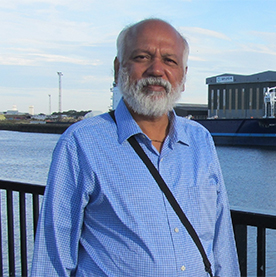
Prof. Sandeep Kumar
IIT (BHU) Varanasi, India
Dr. Sandeep Kumar is a Professor, Department of Mechanical Engineering, IIT (BHU), Varanasi. He graduated from MNREC Allahabad and completed post-graduation from BHU, Varanasi. His field of interest is Computational Mechanics. After completing Ph.D. from IIT Delhi in the field of composite plates and shells, he has worked in various fields of research such as meshless methods, chaos theory, and wavelets etc. Before joining IIT (BHU), he worked in REC Kurukshetra, BITS Pilani and AIMST, Malaysia. He has completed several research projects for DST and BARC. He has numerous publications in international journals of repute. He has authored a popular book, “Mathematical Theory of Subdivisions - Finite Elements and Wavelet Methods”, which is published by CRC press.
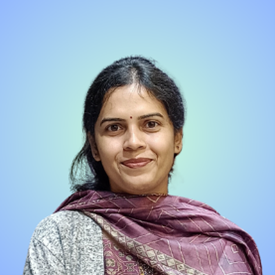
Dr. Sreetama Misra
IIT Bhubaneswar, India
Dr. Sreetama Mishra is a distinguished Philosophy faculty member at IIT Bhubaneswar, with a wealth of experience in teaching and research. Her areas of expertise include moral philosophy, environmental ethics, and phenomenology. Dr. Mishra holds a doctoral degree from Assam University and has been awarded a Junior Research Fellowship by ICPR, New Delhi. Before joining IIT Bhubaneswar, she was an Assistant Professor in the Department of Philosophy, Belda College (Vidyasagar University) from July, 2014 - November, 2022. She also served as a trained Programme Officer of National Service Scheme from Narendrapur Ramakrishna Mission. Throughout her career, she has received numerous accolades, including gold medals and the Upendra Sankar Memorial Prize for her academic excellence. Dr. Mishra is also a prolific author, having written articles and a book on philosophical topics in world-renowned journals. She is actively involved in academia and serves as a valuable member of the Editorial Board of the International Journal of Philosophy.
Sri Prabhakar B
IWestern Digital, Bangalore
Prabhakar Ballapalle is presently a Lead Engineer at Randstand working for WESTERN DIGITAL, one of the World’s leading Storage Company. He is currently working in the field of flash storage controllers from past 7 years. Before taking up this role, he worked with many world class companies like: SEAGATE, AVAGO, LSI, AGERE etc. Also before joining private sector, he worked as a scientist at Central Research Laboratory and contributed in many prestigious indigenous projects for defense like development of Thermal Imager, Remote Surveillance System and Radar Video Transmission System, etc. He received his MTech in Signal processing from IIT-Kanpur in 2000. He has more than 10 publications and three patents to his credit. His research areas include pattern recognition, artificial intelligence, speech processing, audio processing, video processing, flash storage etc. He is very actively involved in promoting the discussions on science & spirituality among the student’s community and learned circles. He is also an associate editor of “Savijnanam”, Bhaktivedanta Institute journal, “Tattva Jijnasa”, Bhaktivedanta Institute Magazine and the booklet “God, Intelligent design and Fine tuning”. He is currently acting as Director, Bhaktivedanta Institute, Bangalore. His areas of interest in Science and Spirituality include Science of Bhagavad-Gita, Bio-feedback and Meditation, Effect of Prayers on Mind and Body, Japa Meditation and Personality Development etc.
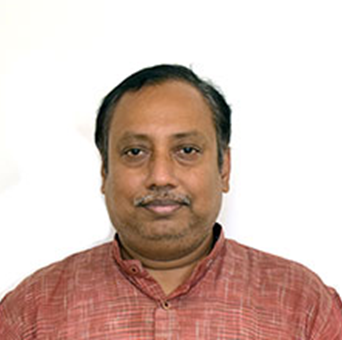
Dr. Rajeshwar Mukherjee
Nalanda University, Nalanda, Bihar
Dr. Rajeshwar Mukherjee, a distinguished scholar renowned for his pioneering research bridging
Physics and Indian Philosophy, holds a Ph.D. from Kavikulaguru Kalidas Sanskrit University in
Ramtek and possesses dual master's degrees in Physics and Sanskrit. Specializing in teaching Vedic
texts, Indian Philosophy, and the Science of Consciousness through the lens of theoretical
physics, Dr. Mukherjee offers a unique interdisciplinary perspective in his academic pursuits.
Presently, Dr. Mukherjee serves as a faculty member at the School of Buddhist Studies, Philosophy
& Comparative Religions at Nalanda University.
Previously, he held the position of Assistant Director of Research at the Kaivalyadharna Research
Institute in Lonavla, Pune, an institution recognized by the Ministry of Education, Government of
India. With extensive experience as a Research Officer, lecturer, and Registrar at the Institute,
he has been instrumental in advancing scholarly discourse and academic research. He has also
contributed significantly to academia as a faculty member at the School of Indian Heritage,
Ramakrishna Mission Vivekananda University, Belur Math. He has served as Visiting Faculty at the
Vedic Yigyan Kendra, Banaras Hindu University, and Chairman of the Board of Studies of the
Department of Yoga at HSNC University.
His scholarly impact extends globally through international dialogues and lectures, accompanied by
numerous publications, including six books and numerous research articles in national and
international journals. Dr. Mukherjee's work continues to shape discourse and inspire intellectual
exploration in the interdisciplinary field of Physics and Indian Philosophy.
Acharya Agnivrat Naishthik
Shri Vedic Swasti Pantha Trust, Ved Vigyan Mandir, Bhagalbhim, Bhimnal
Acharya Agnivrat Naishthik is a revered figure in the realm of Vaidic science, known for his extensive research and scholarly contributions. With a profound understanding of ancient texts and a deep insight into modern science, he has dedicated his life to bridging the gap between traditional wisdom and contemporary knowledge. Acharya Agnivrat's work revolves around uncovering the hidden scientific knowledge embedded within Vedic scriptures, particularly the Aitreya Brahmin of the Rigveda. Through his seminal work, including the monumental 'Ved Vigyan Alok', he has elucidated complex cosmological phenomena and provided scientific interpretations of ancient texts, paving the way for new understandings in physics and cosmology. His efforts have led to the establishment of the Vaidic & Modern Physics Research Centre, aimed at furthering research in Vaidic principles and their application in solving modern-day challenges. Acharya Agnivrat's legacy serves as an inspiration for scholars and scientists for fostering a deeper appreciation for the rich heritage of Vedic knowledge.
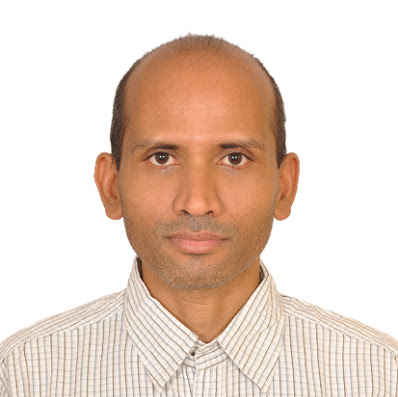
Shri K Vasudev Rao
President, Bhaktivedanta Institute Kolkata, India
Vasudeva Rao is an alumnus of the prestigious IIT Kanpur (Computer Science, 1998), and is currently the President of the Bhaktivedanta Institute. He is one of the major contributors to Bhaktivedanta Institute’s publications, and also the Editor of Bhaktivedanta Institute’s reputed annual journal, Savijnanam – Scientific Exploration for a Spiritual Paradigm. He travels widely across India and abroad creating awareness regarding the interface of Science and Spirituality among academic and professional circles. His deep interest in the foundations of mathematics, the fundamentals of computer science and logic, and its relation to the nature of consciousness, nature of reality as well as ancient Indian texts has led him to meet and interact with renowned scholars at Harvard, Princeton, Stanford and MIT. He has delivered numerous talks on computer science and spirituality. Under his able guidance and supervision, more than 10 national conferences, two International conferences, and over 100 seminars and workshops on science and spirituality have been organized by the Institute in the past decade, which includes contributions from more than 20 Nobel Laureates and world-renowned scholars; in addition, over 200 papers have been published by the Bhaktivedanta Institute. He was a former Global Council Trustee of the United Religions Initiative
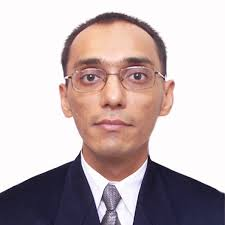
Shri Varun Agarwal
Director, Bhaktivedanta Institute Kolkata, India
Varun Agarwal is an alumnus of IIT Kanpur (Aerospace Engg - 1999) and is currently the Director of the Bhaktivedanta Institute, Kolkata. His research interests include the foundations of science and its possible connections with spirituality. His search for a deeper meaning of life culminated in meeting and taking personal guidance from Dr. T. D. Singh, which completely changed his life, after which he dedicated himself to the cause of selflessly helping humanity. He is the Editor of many publications on science and spirituality, including Bhaktivedanta Institute’s reputed annual science-spirituality journal, Savijnanam – Scientific Exploration for a Spiritual Paradigm. His deep interest in the foundations of mathematics and the nature of consciousness and its relation to the nature of reality as well as ancient Indian texts has led him to interact and meet with renowned scholars at Harvard, Princeton, ETH, Stanford and MIT. He has given numerous talks worldwide on the foundations of science, as well as the foundations of life, mathematics and spirituality.